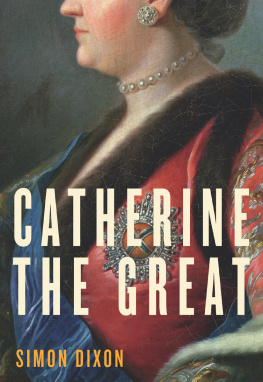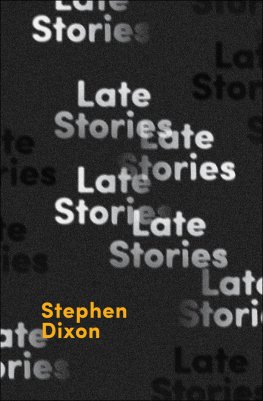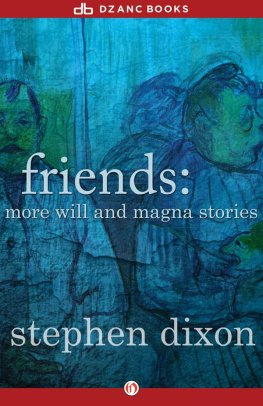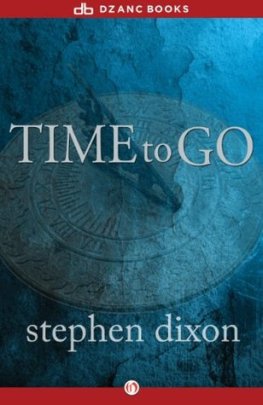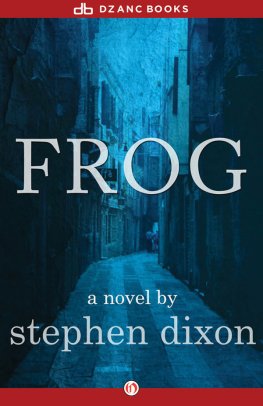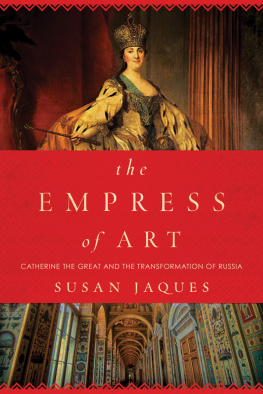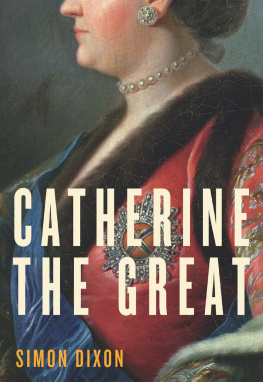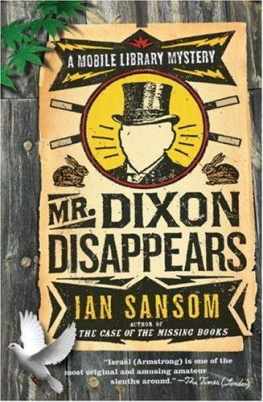Simon Dixon - Catherine the Great
Here you can read online Simon Dixon - Catherine the Great full text of the book (entire story) in english for free. Download pdf and epub, get meaning, cover and reviews about this ebook. publisher: HarperCollins Publishers, genre: History. Description of the work, (preface) as well as reviews are available. Best literature library LitArk.com created for fans of good reading and offers a wide selection of genres:
Romance novel
Science fiction
Adventure
Detective
Science
History
Home and family
Prose
Art
Politics
Computer
Non-fiction
Religion
Business
Children
Humor
Choose a favorite category and find really read worthwhile books. Enjoy immersion in the world of imagination, feel the emotions of the characters or learn something new for yourself, make an fascinating discovery.
- Book:Catherine the Great
- Author:
- Publisher:HarperCollins Publishers
- Genre:
- Rating:3 / 5
- Favourites:Add to favourites
- Your mark:
- 60
- 1
- 2
- 3
- 4
- 5
Catherine the Great : summary, description and annotation
We offer to read an annotation, description, summary or preface (depends on what the author of the book "Catherine the Great " wrote himself). If you haven't found the necessary information about the book — write in the comments, we will try to find it.
Catherine the Great — read online for free the complete book (whole text) full work
Below is the text of the book, divided by pages. System saving the place of the last page read, allows you to conveniently read the book "Catherine the Great " online for free, without having to search again every time where you left off. Put a bookmark, and you can go to the page where you finished reading at any time.
Font size:
Interval:
Bookmark:

To my parents
The coronation of a usurper 1762
From Pomerania to St Petersburg 17291744
Betrothal and marriage 17441745
Living and loving at the Court of Empress Elizabeth 17461753
Ambition 17541759
Assassination 17591762
Our Lady of St Petersburg 17631766
Philosopher on the throne 17671768
Imperial ambitions 17681772
Paul, Pugachv and Potmkin 17721775
The search for emotional stability 17761784
Zenith 17851790
End of an era 17901796
The afterlife of an empress

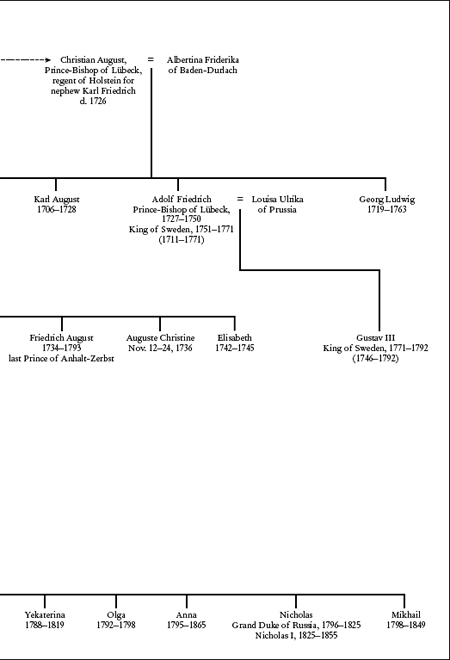
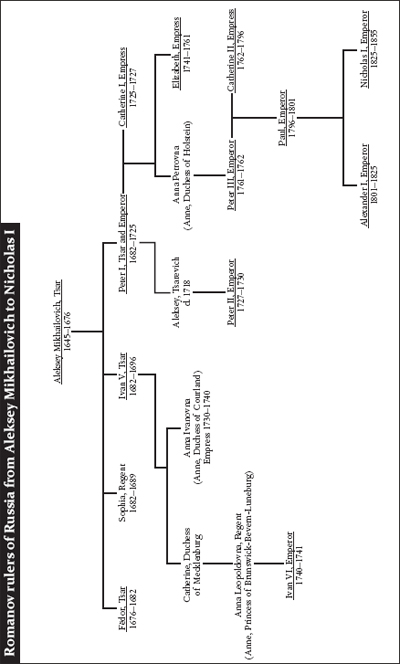
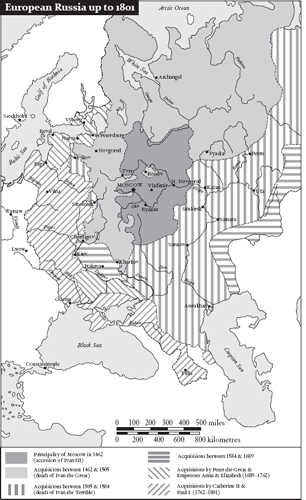
European Russia up to 1801, adapted from Hugh Seton Watson, The Russian Empire 18011917 (Oxford, 1967)
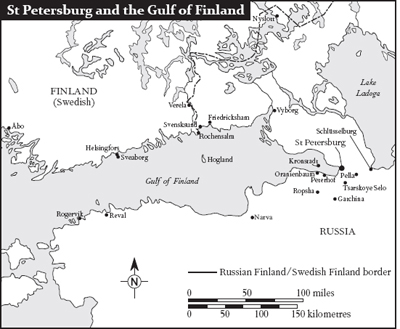
St Petersburg and the Gulf of Finland, adapted from Isabel de Madariaga, Russia in the Age of Catherine the Great (Weidenfeld and Nicolson, 1981)
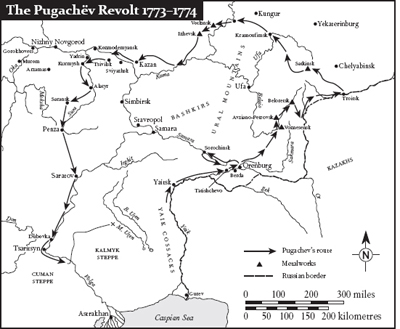
The Pugachv revolt 17734, adapted from John T. Alexander, Autocratic Politics in a National Crisis (Indiana University Press, 1970)

The Russo-Turkish Wars of 176874 and 178791, adapted from Isabel de Madariaga, Russia in the Age of Catherine the Great (Weidenfeld and Nicolson, 1981)
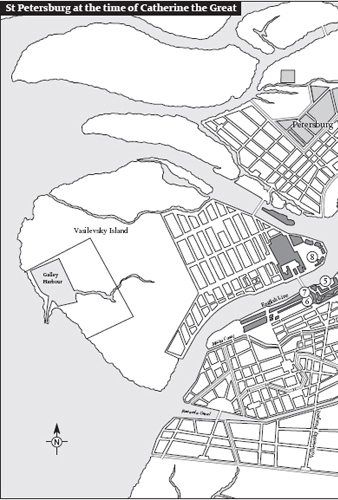
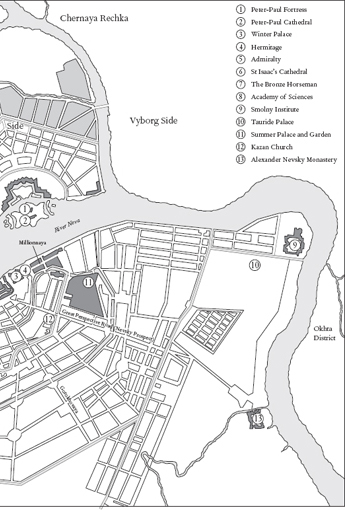
St Petersburg in 1776

The Partitions of Poland, 1772, 1793 and 1795, adapted from John Doyle Klier, Russia Gathers her Jews: The origins of the Jewish question in Russia 17721825 (Northern Illinois University Press, 1986)
Dates : All Russian domestic dates are given according to the Old Style (Julian) calendar, which in the eighteenth century was eleven days behind the New Style (Gregorian) calendar in use in most European states by 1800. New Style dates, when given for events outside Russia, are marked NS.
Spelling and punctuation : English spelling and punctuation have generally been modernised, as has the use of capital letters, even in quotations from eighteenth-century sources.
Transliteration : There is no universally satisfactory system of transliteration for the Cyrillic alphabet. While the endnotes and the Further reading section adopt the Library of Congress system now in widespread scholarly use, a modified version is used in the text. Diacritical marks are omitted. The soft vowel ia becomes ya: so, Yaroslavl rather than Iaroslavl; Trubetskaya rather than Trubetskaia. The soft vowel e sometimes becomes ye: so, Tsarskoye Selo rather than Tsarskoe Selo. ii and iy endings on masculine proper names become y: so, Vyazemsky not Viazemskii. The soft vowel e, pronounced yo, is given as : so, Potmkin rather than Potemkin or Potyomkin.
Names : Catherines name, along with those of other ruling monarchs, is anglicised according to convention; otherwise the Russian is normally retained, e.g. Nicholas I but Nikolay Novikov. In some cases, e.g. Peter and Alexander, the anglicised version is always used. Although Russian makes extensive use of the patronymic in forms of address, most Russian names are given with Christian name and surname only: so Nikolay Novikov, rather than Nikolay Ivanovich Novikov or N. I. Novikov.
J esus Christ, Napoleon and Richard Wagner are said to have inspired more biographies than any other figures in history. Catherine the Great cannot be far behind. Fascinated by a German princess who captured the Russian throne and corresponded with the leading minds of her age, her contemporaries started to tell her story from the moment she died on 6 November 1796. Ever since, her political achievements as ruler of the most powerful emergent empire in Europe have been set against rumours about the amorous liaisons on which she embarked in search of elusive personal fulfilment.
Over 200 years after the empresss death, when both aspects of her life still make headlines in Russia and the West, my aim has been to bridge the gap between formidable historical scholarship and the popular accounts that risk trivialising a woman whose life requires no embellishment to reveal its interest and importance. There is no need to invent her conversations: though her writings can rarely be taken at face value, they tell us much about her active mind. And there is no shortage of acute contemporary comment on her personality and reign (what posterity made of it is the subject of my final chapter). Unless otherwise acknowledged, translations from these sources are my own, though readers who want to explore for themselves now have access to a growing range of excellent English versions, listed in the Further reading section. In addition to identifying the sources of my quotations, the endnotes offer a further (if necessarily inadequate) guide to the scholarship on which I have drawn. A comprehensive list would fill a book far larger than this one.
The Russian historian and journalist Vasily Bilbasov made the same discovery at the end of the 1880s. In addition to filling a fat bibliographical volume, he took more than a thousand lively pages to cover only half of Catherines life before the reigning tsar, Alexander III, intervened to prevent further revelations about his controversial predecessor. Since comprehensiveness is clearly an impossible goal, it is important to have a guiding purpose in choosing what to discuss and what to omit. In attempting to give a fully rounded portrait of the empress, I have taken a broadly chronological approach that helps to emphasise the very wide variety of problems with which an absolute monarch was confronted at any one time. (Corrections to generally accepted dates are largely silent, except where they significantly revise our understanding of the course of events, as, for example, in the case of the funerals of Empress Elizabeth and Alexander Lanskoy.) Above all, however, I have sought to recover a sense of place, situating Catherine in the context of the Court society in which she grew up in Germany and lived most of her long life in Russia. For all that she did to reshape the values of the Court of St Petersburg, it still preserved in the 1790s many of the features of the Baroque Courts which she had first experienced, at Stettin, Zerbst and Brunswick-Wolfenbttel. Here the Court is understood in the multiplicity of senses familiar to her and her contemporaries: an institution alive with intrigue extending from the monarch at its heart to the servants at its outer penumbra; a network of rival aristocratic clienteles at the centre of politics in much of Europe before the French Revolution; the symbolic authority to which foreign ambassadors were accredited; an extraordinary range of palaces, both urban and surburban; and a glittering cultural icon representing the power and majesty of the ruler to her subjects, great and small. That was how Catherine experienced the Court. And no single event did more to reveal its kaleidoscopic significance than her coronation, with which my version of her story begins.
Font size:
Interval:
Bookmark:
Similar books «Catherine the Great »
Look at similar books to Catherine the Great . We have selected literature similar in name and meaning in the hope of providing readers with more options to find new, interesting, not yet read works.
Discussion, reviews of the book Catherine the Great and just readers' own opinions. Leave your comments, write what you think about the work, its meaning or the main characters. Specify what exactly you liked and what you didn't like, and why you think so.

